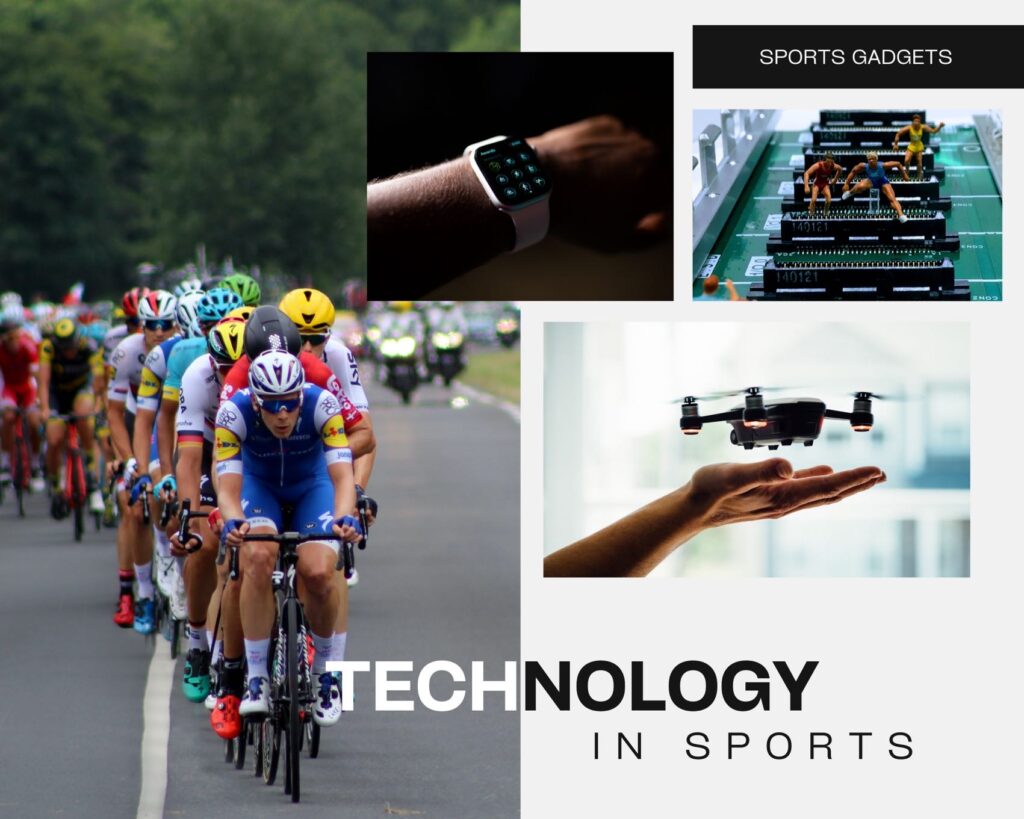
The Future of Sports: A Technological Revolution
- Sports-Tech
- December 30, 2023
Introduction
The world of sports is on the cusp of a technological revolution. As we stand at the intersection of athletics and innovation, it’s becoming increasingly clear that technology is poised to fundamentally transform the way we play, watch, and experience sports. From augmented reality-enhanced fan experiences to AI-driven coaching, the future of sports holds immense promise. In this blog, we’ll explore the use of technology in sports in the near and distant future, and how it’s set to change the game for athletes, fans, and everyone involved.
The Future of Sports: A Technological Revolution
1. Wearable Technology and Athletic Performance
The use of wearable technology has already become common in sports. Devices like fitness trackers, smartwatches, and even smart clothing have allowed athletes to monitor various aspects of their performance in real-time. In the future, we can expect more advanced wearables capable of tracking an even broader range of metrics.
One exciting prospect in the future of sports is the development of “smart uniforms” equipped with sensors and microchips that can monitor an athlete’s vital signs, muscle performance, and hydration levels. This data can be used to tailor training regimes and optimize performance. For example, if a soccer player’s uniform detects fatigue setting in, the coach can make real-time substitutions to keep the team performing at its peak.
2. Virtual Reality (VR) and Augmented Reality (AR) Experiences
Virtual Reality and Augmented Reality have the potential to revolutionize the way fans experience sports. As the future of sports unveils, we can expect VR headsets and AR glasses to transport fans into the heart of the action. Imagine watching the Super Bowl from the quarterback’s perspective or experiencing the intensity of the World Cup final as if you were on the field.
Additionally, AR can be used to enhance stadium experiences. Fans attending live events may use AR glasses that display additional information, player statistics, and even engage in interactive, location-based games during halftime.
3. AI and Sports Analytics
Artificial Intelligence has already found its way into sports analytics. Advanced algorithms can process vast amounts of data to provide insights that were previously unattainable. In the future, AI is likely to play an even more significant role in decision-making, both for athletes and coaches.
AI-driven coaching assistants could analyze an athlete’s performance and provide personalized feedback. This can lead to more efficient training and improvement in specific areas. Additionally, coaches could use AI-generated data to make game-time decisions, such as selecting the optimal lineup or calling plays that exploit the opponent’s weaknesses.
4. The Rise of Esports
Esports, or competitive video gaming, is already a global phenomenon, and is believed to be a major player in the future of sports. As technology continues to advance, esports events will become even more immersive and engaging for both players and spectators.
Esports arenas may incorporate holographic displays and cutting-edge VR setups, allowing players to compete in digital worlds with unparalleled realism. The line between traditional sports and esports could also blur as augmented reality technologies bring virtual sports closer to reality, potentially creating entirely new hybrid sports.
5. Smart Sports Venues
Sports venues are evolving into smart, connected spaces. The stadiums of the future will be equipped with advanced technology to enhance the fan experience. Smart seats could provide personalized viewing angles and instant replays, while smart concessions could offer tailored food and beverage options based on fan preferences.
Moreover, security and crowd management in these venues will be optimized through AI and sensor technology, ensuring the safety and comfort of attendees. Smart stadiums will even use predictive analytics to adjust traffic flow, parking, and security protocols in real time.

6. The Gamification of Training
Training and practice sessions for athletes are also set to undergo significant changes. Gamification of training programs is becoming increasingly popular. Athletes can train more effectively through interactive video games that mimic real game scenarios. This not only makes training more engaging but also allows athletes to refine their skills in a fun and dynamic way.
Furthermore, virtual training environments can replicate any condition or scenario, allowing athletes to prepare for the unexpected. For instance, if you are a skier, you can practice on a virtual slope, adjusting the terrain and weather conditions to match what you may face in competition.
7. Sustainability in Sports
The future of sports isn’t just about technology for performance and entertainment; it’s also about sustainability. As environmental concerns grow, sports organizations are embracing technology to reduce their carbon footprint. Solar-powered stadiums, eco-friendly equipment, and sustainable transportation options for fans are just a few examples.
In the future, we can expect innovations in sustainable sports gear and clothing, making use of materials that reduce waste and environmental impact. Technology will be used to design eco-friendly venues, where energy and water consumption are minimised.
Conclusion
The future of sports is undeniably intertwined with technology. From wearable devices that monitor an athlete’s performance to immersive VR and AR experiences for fans, the possibilities are limitless. Artificial intelligence will shape training and coaching strategies, while esports will continue to gain popularity. Smart stadiums and sustainability initiatives will enhance the overall sports experience.
As technology advances, it will make sports more accessible, engaging, and sustainable. Athletes, fans, and the entire sports industry are poised to benefit from this ongoing technological revolution, redefining the way we play, watch, and experience sports in the future.



